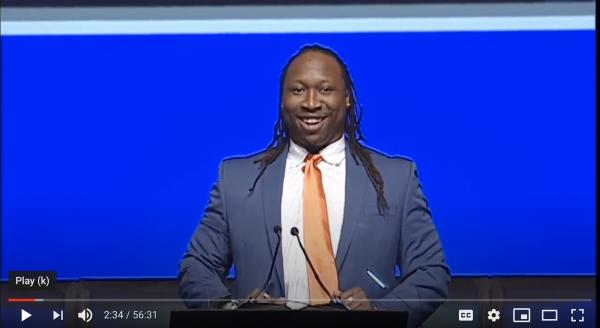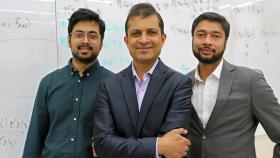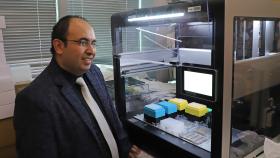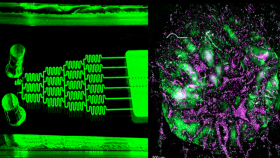In October, 2017, Manu Platt, associate professor in the Wallace H. Coulter Department of Biomedical Engineering at Georgia Tech and Emory University, was honored and delivered the Biomedical Engineering Society’s (BMES) Diversity Award Lecture.
Platt’s lecture addressed the fear of waiting for the perfect time as a professor, graduate student, or undergraduate student to be impactful in promoting diversity and inclusion at your institution. Sage professional mentors and family elders may advise “going along to get along” and “not making waves ” to be successful. Platt challenged this assumption of the “safe” path to success . “Often, if you are the first or the only of a particular demographic category, the path is neither well paved, nor well lit,” said Platt. In this recorded lecture, he discusses the power and the payoff of being unapologetic about identity, the importance of intersectionality, and being intentional in diversifying the workforce. Now.
In this video, the long, enthusiastic, supportive applause from faculty and students attending the annual BMES conference at the conclusion of the lecture was edited out by the video creators for space considerations.
View Dr. Manu Platt’s moving, impactful lecture here on YouTube.
Media Contact
Walter Rich
Keywords
Latest BME News
Researchers demonstrate stem cell treatment without chemotherapy and painful bone marrow procedure
BME researchers explore the critical role of mechanical force in rare genetic disorder
Researchers develop spatial transcriptomics toolkit that provides new insights into the molecular processes of life
Air Detectives take top prize to give department three straight victories in Expo competition
Coulter BME community gathers at the Fabulous Fox to celebrate anniversary of unique public-private partnership
Coskun pioneering new research area and building a company around iseqPLA technology
BME undergraduate student and competitive skater Sierra Venetta has found success on and off the ice
BME researcher Ankur Singh using new technology to uncover weakened response in cancer patients








